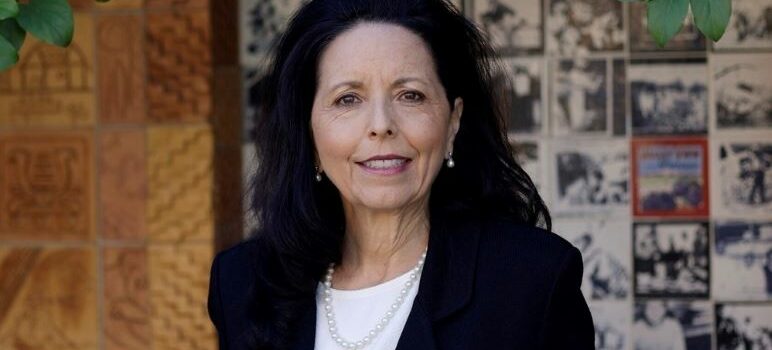Former Santa Clara County Superior Court Judge Katherine Lucero is tasked with leading California's massive transformation of its juvenile justice system by June 2023, a change prompted by the signing of Senate Bill 823 in 2020.
The state's Division of Juvenile Justice will effectively shut down, and any youth who would have previously been sent to one of its four facilities will now be placed in juvenile facilities within their own counties.
There are about 600 young men and women currently housed across the state's four facilities.
Late last year, Gov. Gavin Newsom appointed Lucero as the director of the new Office of Youth and Community Restoration, which was created by SB 823. Lucero is the daughter of farmworkers who has experience as a juvenile dependency court commissioner and most recently as Santa Clara County Superior Court Judge for 20 years. This is a full-time position that pays $194,868 a year. The new office is headquartered in Sacramento.
Known as OYCR, the office is housed within California's Health and Human Services Agency, rather than the state's Department of Corrections and Rehabilitation, a move that signals its new goals and emphasis on taking a more holistic approach to rehabilitating the youth in its custody.
The new office is charged with the rehabilitation of young people between 13 and 25 years old who have historically been adjudicated in the state's juvenile court system. They have been adjudicated for serious or violent offenses, which could include burglary, assault, homicide and other crimes. The average age of youth in state correctional facilities is 19, with a disproportionate majority, 88 percent in 2020, identifying as Black and Latino.
“We believe that all youth deserve to be treated fairly, that all youth deserve to get back on track and have the support they need to get back on track -- even those youth who have committed the most violent crimes,” Lucero said in a recent interview. “I've seen the beginning to the end, so to speak, with the kids, from being on the bench in both the child welfare courts and in the juvenile justice court.”
“I've read thousands of files ... and I can say that youth who commit violent crimes, a majority of them have been known to the child welfare system. If not fully petitioned, at least there had been many, many red flags that these children and their families needed robust interventions that were healing-based and trauma-based,” she said. “Our youth who are in the juvenile justice system easily can count off many of the adverse childhood experiences in all forms: family violence, community violence, the violence that comes from living in poverty, having parents incarcerated, the emotional and psychological toll that that takes on our youth.”
She said the shift in California’s approach “is one that fully embraces the role that all of our government entities have played in the life of the child offender and provides a pathway home and healing that allows children to become the best version of themselves.
“No person should be forever labeled and made to pay for something that occurred when they were in a full adolescent development phase of their lives. Terrible mistakes can be made, and terrible mistakes can be rectified.”
Lucero said the new office will provide technical assistance to counties, to ensure that there's training available for every county, for every probation chief, every district attorney, and every public defender around how to make sure that our kids are getting great educational experiences in custody, and then getting that bridge back to their either mainstream schools or alternative schools, if necessary.”
The law that established the new office carries annual funding of $7.6 million, plus one-time startup funding of about $27 million.
Lucero acknowledged that “There are fears that the challenges the Division of Juvenile Justice has faced -- and the large institutional system under which it functions -- might be replicated at the county level once the division’s facilities are fully shuttered next year.”
‘We're not going to be having kids placed far away from their families in congregate care and forgotten,” she pledged. “We're going to have kids in their communities, and we're going to transition them back welcomed and healed and forgiven because that's how we're going to lead it.”
Betty Marquez Rosales is a reporter with EdSource, which partners with Bay City News.


“We’re going to have kids in their communities, and we’re going to transition them back welcomed and healed and forgiven because that’s how we’re going to lead it.”
Seriously, this is how this woman intends to deal with some hardened criminals and gang bangers? I know that kids make mistakes — I have seen it in my own family. But many of these 16 and 17 year-olds are in need of some long-term time behind bars — and there are plenty of statistics to prove it.
This is nothing more that the statewide version of the progressive DAs — think Boudin and Gascon.